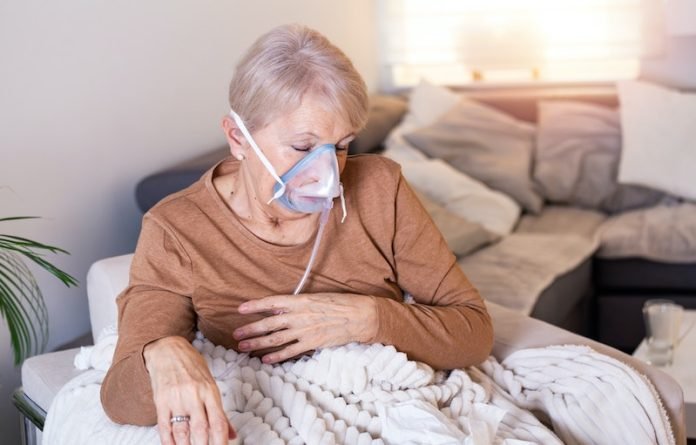
Scientists at Bangur Institute of Neurosciences have found that COVID-19 can have a serious impact on the brains of people who already have dementia.
Dementia is a condition that affects a person’s memory, thinking, and reasoning abilities.
The scientists found that people with dementia who get COVID-19 can experience a rapid decline in their cognitive abilities, which means they can have a hard time remembering things and thinking clearly.
The researchers studied 14 patients with different types of dementia, including Alzheimer’s disease, vascular dementia, Parkinson’s disease dementia, and the behavioral variant of frontotemporal dementia.
They found that all of the patients experienced a rapid and aggressive deterioration in their cognitive abilities after getting COVID-19. Even patients with different types of dementia started to behave similarly after getting the virus.
The researchers also found that the characteristics of certain types of dementia changed after the patients got COVID-19.
Both degenerative and vascular dementias started behaving like mixed dementia, which means they showed signs of both types of dementia.
The researchers also found that the patients had a higher chance of developing white matter lesions in their brains after getting COVID-19.
The researchers propose a new term called “FADE-IN MEMORY” to describe the cognitive problems that people with dementia may experience after getting COVID-19.
This stands for Fatigue, decreased Fluency, Attention deficit, Depression, Executive dysfunction, slowed information processing speed, and subcortical MEMORY impairment.
It is important for caregivers to be aware of these cognitive problems because they can cause additional stress and burden on caregivers.
The researchers believe that it is important to distinguish between COVID-19-associated cognitive impairments and other types of dementia so that we can better understand how the virus affects the brain.
This understanding could help with future dementia research and provide better care for people with dementia who may be more vulnerable to the effects of COVID-19.
How to prevent dementia
There is currently no known cure for dementia, but there are things you can do to lower your risk of developing the condition or slow down its progression if you have already been diagnosed with it.
Here are some tips for preventing dementia:
Stay physically active: Regular exercise can help to improve blood flow to the brain, which can help to keep the brain healthy and reduce the risk of cognitive decline.
Eat a healthy diet: A diet that is high in fruits, vegetables, whole grains, and lean protein can help to keep your brain and body healthy. Some studies suggest that a Mediterranean-style diet may be particularly beneficial for brain health.
Stay mentally active: Keeping your brain active through activities like reading, doing puzzles, and learning new skills may help to reduce the risk of cognitive decline.
Manage chronic health conditions: Certain chronic health conditions, like high blood pressure, diabetes, and heart disease, have been linked to an increased risk of dementia. Managing these conditions through medication and lifestyle changes can help to lower your risk.
Get enough sleep: Sleep plays an important role in brain health, and chronic sleep deprivation has been linked to an increased risk of cognitive decline. Aim for seven to eight hours of sleep per night.
Stay socially connected: Social isolation and loneliness have been linked to an increased risk of dementia.
Staying socially connected through activities like volunteering, joining clubs or groups, and spending time with friends and family can help to keep your brain healthy.
Protect your head: Head injuries have been linked to an increased risk of dementia. Take steps to prevent falls and wear protective gear when engaging in high-risk activities like sports.
While there is no guaranteed way to prevent dementia, these tips can help to lower your risk and keep your brain and body healthy as you age.
If you care about COVID, please read studies about how diets could help manage post-COVID syndrome, and zinc could help reduce COVID-19 infection risk.
For more information about brain health, please see recent studies about ultra-processed foods linked to higher dementia risk, and results showing Vitamin B supplements could help reduce dementia risk.
The study was conducted by Souvik Dubey et al and published in the Journal of Alzheimer’s Disease Reports.
Copyright © 2023 Knowridge Science Report. All rights reserved.



